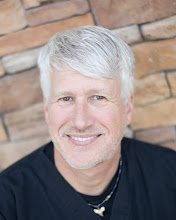Dr. Marty Jablow is one of my very best friends. We've known each other for over 30 years, going back to the Internet Dental Forum which was a way to connect peers via email in the early 90s. Marty and I have done more lectures together than I can remember, we've vacationed together, and my family has even eaten Thanksgiving dinner in his house. Needless to say, I love him like a brother.
A few years ago Marty came to me with an idea. He was working on creating a live event that would pair emerging dental tech entrepreneurs together with people who understood the business side of the industry. The dental industry is full of inventors and those individuals need to find people to help guide and fund their project into the business side of things.
That idea is now fully formed and in its second year. Marty's idea became the Dental VIP Summit. Last year it was an incredible event and this year looks to surpass that one on a whole bunch of levels. It is being held next week on February 18th in Chicago, which is the Wednesday before the Chicago MidWinter Meeting kicks off. If you are interested in seeing the future of the profession, I *highly recommend attending*!!! The official lineup is a who's who of people in the industry. I'll be there and I hope many of you will be as well. Read on for all the details...
With less than one month to go before the second annual Dental VIP (Venture, Innovation & Partnering) Summit, the promoters have released its final agenda, confirming a third keynote speaker and an expanded roster of speakers, panelists, and innovation showcase companies.
The boutique, invitation-driven conference will take place the day before the Chicago Midwinter Meeting on February 18, 2026, at the InterContinental Chicago Magnificent Mile, bringing together dental entrepreneurs, investors, venture capital leaders, DSOs, clinicians, and industry executives for a full day of insight, deal-flow, and strategic collaboration.
“The Dental VIP Summit was built to be highly curated, highly relevant, and highly actionable,” said Marty Jablow, DMD, Co-Chair of the Summit. “With the addition of a third keynote and a significantly expanded speaker lineup, this year’s program reflects the accelerating convergence of dentistry, technology, venture capital, and new care delivery models.”
A-List Leadership and Expanded Keynote Program
Along with Dr. Jablow, the 2026 Dental VIP Summit is co-chaired by Jeremy Krell, DMD, MBA, Managing Partner, Revere Partners; and Travis Rodgers, President, Dental Venture Capital.
The finalized keynote program now features three nationally recognized industry leaders, including:
- Brian Colao, Director, Dykema Dental Service Organizations Industry Group
- Stephen E. Thorne IV, BA, MHA, Founder and CEO, Pacific Dental Services
- Andrea Albertini, Chief Executive Officer, Global Distribution and Technology, Henry Schein
Together, the keynote addresses will explore the future of dental-medical integration, DSO evolution, innovation adoption, and capital formation in oral health.
Finalized Program Reflects the Full Spectrum of Dental Innovation
The updated agenda now includes:
- High-impact keynote sessions
- Expert-moderated panels on AI, predictive dentistry, venture capital, and new care models
- Two Innovation Showcase segments spotlighting emerging technologies
- A Shark Tank-style Emerging Tech Showcase
- Strategic discussions on scaling innovation and partnership development
- Dedicated networking and investor-founder matchmaking opportunities
Rather than listing the full speaker and panelist roster, organizers are directing attendees and media to the live agenda page, which reflects real-time updates as final participants are confirmed. View the full, updated agenda: https://www.dentalvipsummit.com/agenda
The Lifetime Innovator Award Debuts at the Summit
The Lifetime Innovator Award, presented for the first time during this year’s Dental VIP Summit, recognizes an individual whose career-long commitment to innovation has made a lasting impact on the dental industry. This honor celebrates visionary leadership, transformative contributions, and sustained influence that have advanced dentistry and shaped the future of oral healthcare.
Limited Attendance and Hotel Block Now Open
Attendance at the Dental VIP Summit is intentionally limited to preserve its highly curated, relationship-driven format. Registration will remain open until seating sells out https://www.dentalvipsummit.com/registration
About the Dental VIP Summit
The Dental VIP (Venture, Innovation & Partnering) Summit was created to showcase transformative dental technologies and accelerate innovation across the global oral-health community. The program unites entrepreneurs, investors, key opinion leaders, clinicians, and industry executives to foster collaboration, evaluate emerging solutions, and advance technologies that elevate patient care and business performance.











